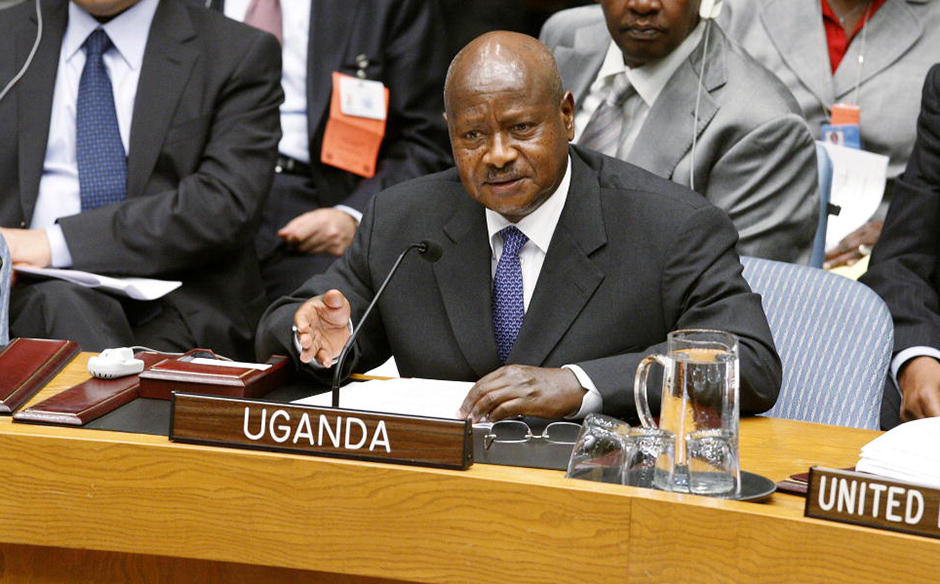Kampala, Uganda — The Government of Uganda has sounded a strong warning to money lenders operating illegally and charging exorbitant interest rates, saying such exploitative behaviour is worsening poverty and undermining national development efforts.
This came to light during the official launch of the Microfinance Forum, a multi-stakeholder platform aimed at strengthening coordination and regulation in Uganda’s growing microfinance sector. The event was held in Kampala and presided over by the Minister of State for Microfinance and Small Enterprises, Hon. Haruna Kyeyune Kasolo.
The minister expressed serious concern over increasing reports from citizens across the country who have fallen victim to unregistered and unscrupulous lenders. Many of these so-called “money men,” he said, are taking advantage of vulnerable Ugandans through unfair terms, illegal agreements, and severe penalties that leave borrowers in financial bondage.
“People are complaining in large numbers. Some lenders are forcing borrowers to surrender their national identity cards. Others are pushing them to sign fake sale agreements when in reality they are only offering property as collateral. This is criminal,” Hon. Kasolo stated.
According to him, the government is aware that many operators are disregarding existing financial regulations and operating outside the law. He noted that it is common practice for lenders to charge interest rates that far exceed legal limits, with some reportedly charging over 25% per month—leaving borrowers in perpetual debt.
“These lenders are trapping people in endless debt cycles and confiscating national IDs, which is illegal and unacceptable,” Kasolo said firmly. “We are not going to fold our arms. We shall intensify supervision and clamp down on unlicensed operators. No one is above the law.”
The issue of loan sharks and illegal lending practices is not new. In 2023, President Yoweri Museveni also criticized the confiscation of identity cards and directed government agencies to step up action against rogue lenders. Despite this, the problem has persisted, with some lenders taking advantage of weak enforcement and desperate borrowers.
Kasolo said the Microfinance Forum, which brings together officials from the Uganda Microfinance Regulatory Authority (UMRA), SACCOs, commercial banks, and civil society groups, would serve as a key platform for enforcing discipline in the sector.
“The forum will help us identify gaps in licensing, improve regulation, and encourage safe lending practices. This is about protecting our people from modern-day slavery through debt,” he said.
The minister also stressed that borrowers need to be educated about their rights. He urged the public to only deal with licensed financial institutions, and not to sign documents without proper legal advice or understanding.
“Do not sign anything you do not understand. And stop borrowing from people who are not registered. There is no shame in borrowing, but you must do it smartly,” he added.
He said government is reviewing the entire microfinance legal framework to close loopholes and punish non-compliant actors more severely. New guidelines for registering Savings and Credit Cooperative Organisations (SACCOs) and private lenders are also expected in the coming months.
As Uganda continues to push for financial inclusion and support for small enterprises, there is a growing recognition of the role of microfinance in job creation, women’s empowerment, and poverty reduction. However, experts say this progress risks being undermined by predatory lenders who are exploiting regulatory gaps.
Stakeholders at the forum agreed that technology should also play a bigger role in formalising lending and improving transparency. Many called for the development of a central credit registry and stronger partnerships between SACCOs, mobile money platforms, and commercial banks to make borrowing easier and safer for Ugandans.
“This isn’t just about money. It’s about justice, dignity, and giving people a fair shot at improving their lives without being enslaved by debt,” said Dr. Grace Banturaki, a financial inclusion advocate who attended the event.
The minister concluded with a warning that ongoing crackdowns would target both individuals and institutions who continue to abuse the system, stating that “this era of financial impunity is coming to an end.”
